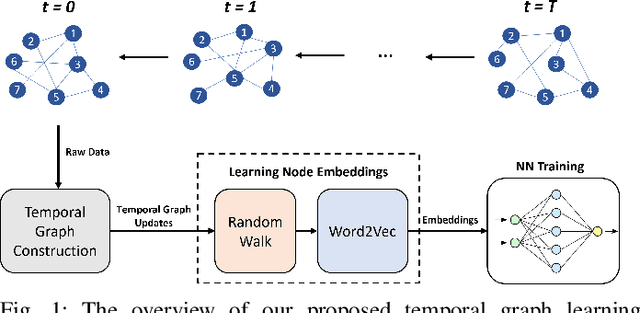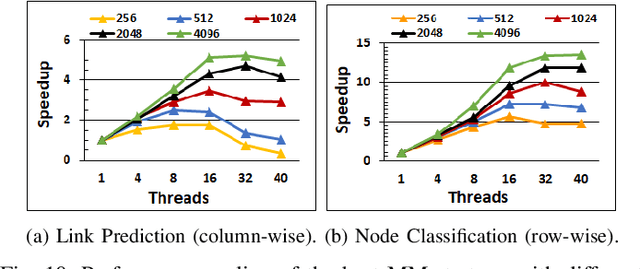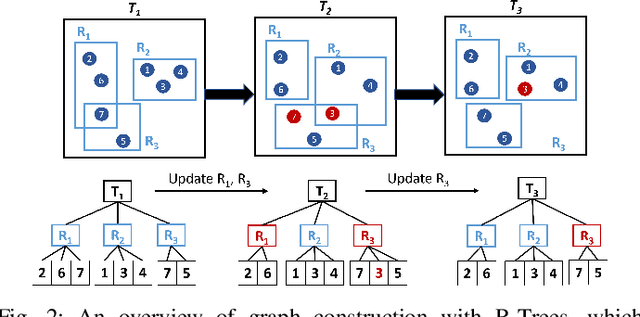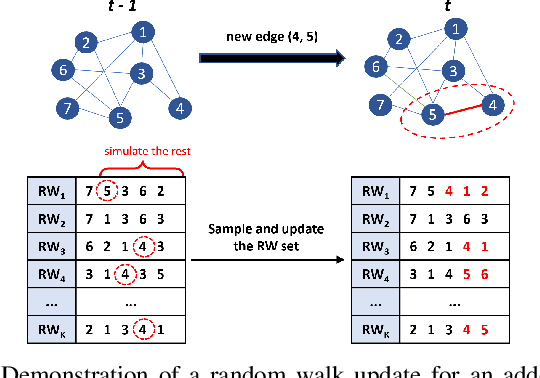Towards Real-Time Temporal Graph Learning
Paper and Code
Oct 12, 2022



In recent years, graph representation learning has gained significant popularity, which aims to generate node embeddings that capture features of graphs. One of the methods to achieve this is employing a technique called random walks that captures node sequences in a graph and then learns embeddings for each node using a natural language processing technique called Word2Vec. These embeddings are then used for deep learning on graph data for classification tasks, such as link prediction or node classification. Prior work operates on pre-collected temporal graph data and is not designed to handle updates on a graph in real-time. Real world graphs change dynamically and their entire temporal updates are not available upfront. In this paper, we propose an end-to-end graph learning pipeline that performs temporal graph construction, creates low-dimensional node embeddings, and trains multi-layer neural network models in an online setting. The training of the neural network models is identified as the main performance bottleneck as it performs repeated matrix operations on many sequentially connected low-dimensional kernels. We propose to unlock fine-grain parallelism in these low-dimensional kernels to boost performance of model training.
 Add to Chrome
Add to Chrome Add to Firefox
Add to Firefox Add to Edge
Add to Edge